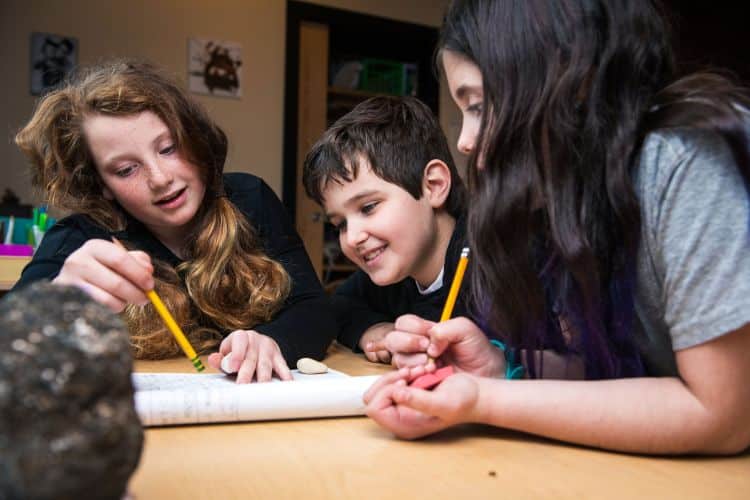
When you think of challenging school subjects, your mind might go to calculus, physics, or poetry analysis. But for young children today, the questions they ask often focus on real-life issues—about fairness, power, and identity—that are at the heart of our society.
Introducing Kids to Complex Topics in Simple Ways
Today’s children are growing up surrounded by information and ideas, making them more aware of things like race, gender, privilege, and power. Sometimes, when kids ask questions about these topics, adults feel the need to protect them by avoiding difficult conversations. While it’s natural to want to shield children, we might also consider talking to them honestly and openly, in ways that make sense for their age. This way, they can understand the world around them, including the ways it impacts them and others.
Learning Empathy and Understanding Through History
At Voyagers’ Community School, our curriculum includes these conversations as part of learning about history and society. We help students explore how privilege and power have affected people’s lives over time and across cultures. For example, in our high school Humanities class, we cover periods like the Civil Rights Movement and ask tough questions: Who did the Declaration of Independence include? What do incarceration statistics tell us about fairness? In our elementary class, students learn about poverty, homelessness, and people who’ve been forgotten in traditional lessons, such as lesser-known inventors and activists.
By facing these topics head-on, students get a chance to “walk in someone else’s shoes” and understand different perspectives. This helps them develop important qualities like empathy, open-mindedness, and the ability to think about creative solutions. For example, when children role-play events from history, they imagine what it was like to face the challenges of that time. This learning goes beyond facts—it gives students tools to think about their actions and how they affect others.
Empowering Young Change-Makers
As children grow, their world expands beyond their home and community. When we talk openly with them about activism, finding passions, and making a difference, they start to see themselves as capable of positive change. Our teachers encourage students to share their thoughts, ask questions, and listen to others, creating a safe space for diverse opinions. This approach inspires students to be creative thinkers, confident speakers, and compassionate leaders.
When we tell kids the truth about the hard things in our world, we send a powerful message: “I trust you, and I believe you’re capable of understanding and helping to make things better.” This trust empowers children to live fuller lives, knowing they can make a positive difference. And with that understanding, they can go back to the joy of play and the wonder of exploration, knowing they are connected to the world around them in meaningful ways.